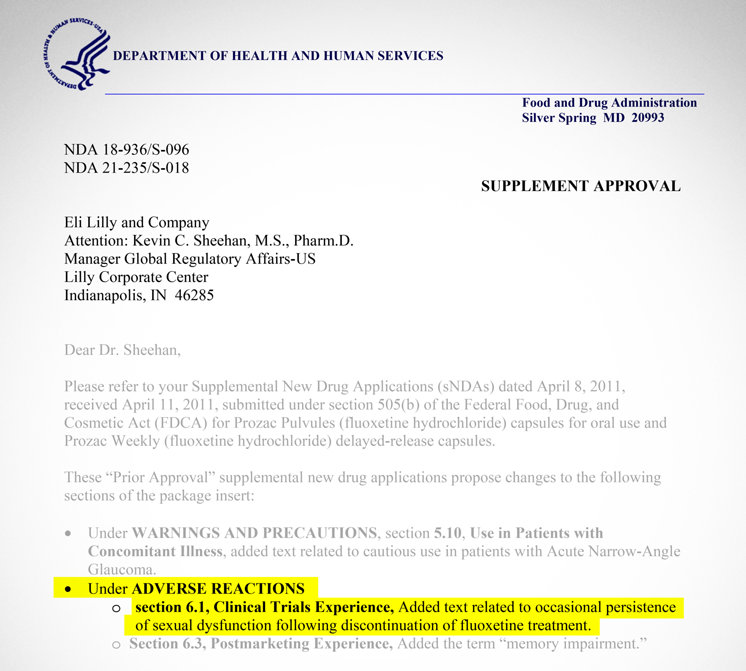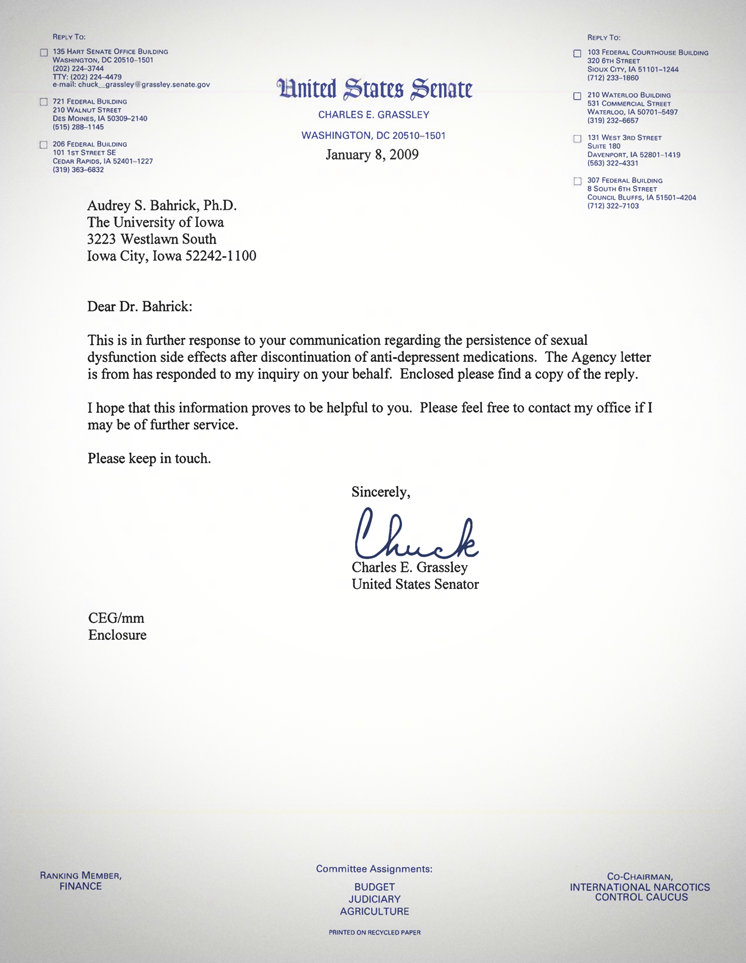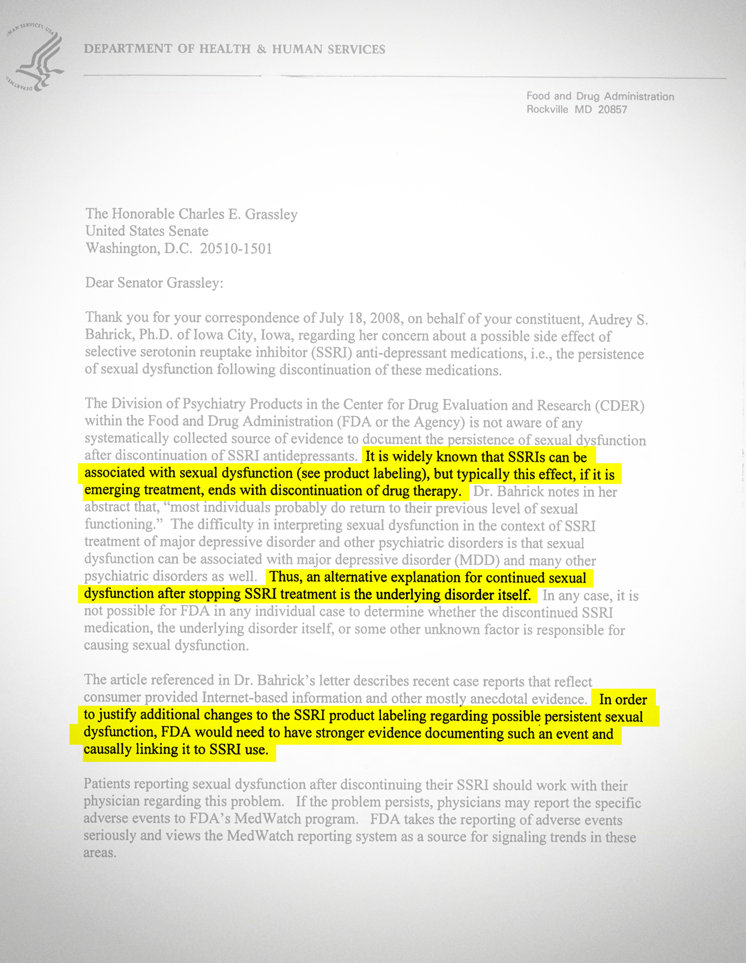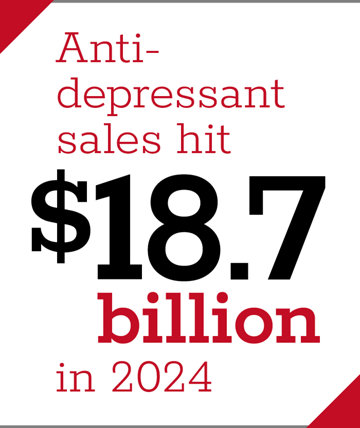It whispered the secret to its best friend, Big Pharma.
And the whisper is “PSSD.” The letters stand for Post-SSRI Sexual Dysfunction, severe sexual side effects suffered by too many after withdrawing from SSRIs, a class of antidepressants. The afflictions include complete loss of libido, genital anesthesia and erectile dysfunction, among other symptoms—and with them, the harrowing inability to feel … anything.
When burying inconvenient data isn’t quite enough to sell the illusion, there’s an even darker art: rewriting reality altogether.
Chemical castration is a punishment for the guilty in many countries. PSSD accomplishes the same for the innocent.
But there is one difference between the two. Chemical castration can be reversed.
PSSD is permanent.
Meanwhile, as patients are stripped of their capacity for sensation and connection, psychiatry and Big Pharma respond with a lack of sensitivity all their own—one born not of injury, but of indifference to the very people they claim to help, as they seal the cave shut on a condition that has led to shattered lives, wrecked relationships and suicide.
The fortress protecting the secret of PSSD has four walls:
- Cherry-picking or outright falsification of clinical trials
- Suppressed or unpublished negative data
- Inaction from agencies like the FDA—despite thousands of adverse reports
- Silenced media due to pressure from Big Pharma
Cherry-picking or outright falsification of clinical trials
A key event in the life of a drug profiteer is the clinical trial. A successful one, proving your drug’s safety and efficacy, means your application to the nation’s regulatory agency—whether it’s the Food and Drug Administration (FDA) in the US, the Medicines and Healthcare products Regulatory Agency (MHRA) in the UK or another agency in another nation—means the gates to profits and prosperity fling open. A negative result, indicating that your drug is useless, harmful or both, means disgrace, failure and the loss of millions to your investors and possibly billions to your company. So successful clinical trials are the golden fleece, the Holy Grail, the ripest and sweetest fruits of the harvest. Unsuccessful ones must be pruned away and discarded—or at least made to look successful.
According to a report published in The New England Journal of Medicine, 31 percent of clinical trials completed on antidepressants—many of which showed negative results—were not published. But the ones that were painted a rosy, falsely positive portrait of the drugs.
And when burying inconvenient data isn’t quite enough to sell the illusion, there’s an even darker art: rewriting reality altogether.
See a clinical trial that’s not favorable to your cash-cow drug? No problem. Hire a ghostwriter to alter it to your liking.
Drug companies often ghostwrite medical journal articles, then slap an academic’s name on them—someone who may have had little or nothing to do with the research or writing, but whose reputation lends credence and gravitas.
The process starts with the drug company paying a research organization to run a clinical trial. Once the results come in, the company reviews the data, decides what to omit, hires professional writers to shape the narrative, and pays an academic to glue his or her name on it.
For Big Psych and Big Pharma, the twin industries that peddle death, it’s all a routine business expense.
But rewriting the truth sometimes isn’t enough. Sometimes the data must be made to disappear.
Suppressed or unpublished negative data
Drug companies and psychiatrists often collude to suppress the facts altogether.
The antidepressant Reboxetine was a typical example: Seven clinical trials of the drug were conducted, six of which definitively deemed the drug harmful and ineffective. The seventh, done with the fewest participants, had a positive outcome. Can you guess which of the seven trials saw the light of day?
Another example was Eli Lilly’s antidepressant Prozac, the grandaddy of them all. In 1987, after the FDA-mandated clinical trials required for agency approval of any drug, Prozac was the first SSRI to ever be granted the American health watchdog’s official imprimatur for broad release to the public.
Enduring sexual difficulties following discontinuation of SSRIs had been reported since at least 1991.
Across the Atlantic, two decades later in 2006, the European Medicines Agency (EMA) required Eli Lilly to investigate whether Prozac was causing irreversible damage to the sexual development of adolescents. The company had no answers for why their drug was causing testicular toxicity in rodents, but stated that evidence showed the effect only occurred at high doses. They then claimed that conducting a clinical study on the effects of Prozac on the sexual development of adolescents was “unfeasible,” even as they marketed their PSSD-inducing drug to adolescents. By way of an excuse, Lilly pointed to a planned National Institute of Mental Health–funded study on the subject that was no longer proceeding, and claimed a new one couldn’t be conducted “as now not sponsored by the NIMH.”
The EMA backed off.
In 2011, Eli Lilly, based on its own records, proposed a label change to the FDA for Prozac. The FDA, in turn, approved the addition of mealymouthed language along the lines of “Symptoms of sexual dysfunction occasionally persist after discontinuation of fluoxetine [Prozac] treatment” to the warnings on the bottle. According to the FDA’s response to Lilly’s request, the company asked for the change based on its clinical trials. Was this evidence buried in the clinical trials conducted before the FDA approved Prozac in 1987? Enduring sexual difficulties following discontinuation of SSRIs had been reported since at least 1991. Yet they said nothing. For decades—while the nation graduated from rotary phones and fax machines to email and the internet, the company informed no one, least of all its customers, about the dangerous consequences of the drug they were hawking.

No secret can remain a secret forever. And when facts begin to trickle out, you’d expect the agencies tasked with protecting the public to sound the alarm or at least poke the hole bigger by asking the right questions. Protecting the public is their job after all.
Instead, too often, they just look the other way.
Inaction from regulatory agencies
Even with the callous refusal by the psychiatric industry and Big Pharma to let the public in on the full truth, we have a way of finding out.
When you realize a drug has robbed you of the most intimate part of you—that part that feels and expresses love—you notice.
Thousands of adverse reports on the negative effects of antidepressants from ordinary people have flooded the inboxes of drug regulators worldwide who have been aware of PSSD for decades.
As PSSD Network Board Member Daniel Demers told Freedom, “Medication regulators around the world could have picked up on PSSD before the first SSRI was even approved. Not only are there cases of older generations of antidepressants causing the condition, but SSRIs cause testicular toxicity in animals.”
Iowa Senator Chuck Grassley asked the FDA in 2008 to look into reports that antidepressants caused persistent sexual dysfunction. The FDA answered that, for all they knew, the sexual dysfunction was caused by “the underlying disorder [depression] itself,” claiming to need “stronger evidence.”
If one checks the psychiatric bible, the Diagnostic and Statistical Manual of Mental Disorders, under “Criteria for a Major Depressive Episode,” the page-long list of symptoms—any five of which must be present for two weeks to qualify the person as “depressed”—one searches in vain for anything remotely resembling genital anesthesia. In other words, the FDA’s callous dismissal was based on … nothing.
The FDA further perpetrated the blatant falsehood that sexual dysfunction caused by a drug typically “ends with discontinuation of drug therapy.”
Tell that to the thousands who have withdrawn from SSRIs and suffer for years with PSSD.


In 2018, 22 health experts submitted an evidence-packed petition to the agency urging mandatory labels on antidepressants that warn of the potential for PSSD and the reverse nightmare: Persistent Genital Arousal Disorder (PGAD), a torment of relentless, unwanted arousal and orgasms so unbearable that some have resorted to irreversible measures like clitorectomy just to escape the agony.
Why would the media be skittish about covering this mammoth scandal?
The FDA’s response, required by law within 180 days, was silence. A lawsuit filed by PSSD Network’s scientific advisor, Associate Professor Antonei Csoka, after six more years of crickets was thrown out on a technicality.
To date, no country in the world recognizes the term “PSSD,” the US requires no warning labels about it on its antidepressants and, with its very initials unknown to the average person, there’s no way for the sufferer to even search the internet to find out about the soul-paralyzing affliction winnowing away his will to live.
But regulators weren’t the only ones who fell silent. The “watchdogs,” the press—the ones meant to hold power to account—barely barked at all.
Silenced media due to pressure from Big Pharma
What a scoop! What a scandal! It checks all the boxes: Victims suffering in silence. Corporate interests overwhumping public health. Suppression of scientific facts. Regulatory failure. And to top it off, it’s all about sex! Where are the tabloids? Where is the media outcry? Where are the swarms of reporters besieging the towers of Big Pharma and Big Psych demanding interviews, answers, sound bites?
Nothing. Just a gaping hole where outrage—or at the very least intense curiosity—should have been.
In the US, Audrey suffered from PSSD. For years, she tried to get someone to listen to her—to recognize and sound the alarm. “I vigorously reached out to dozens of health journalists and every major newspaper in the big city,” she recalls. “I wrote to them. All those efforts resulted in just a couple of nibbles but no follow-through.”
Why? Why would the media be skittish about covering this mammoth scandal?
Money, that’s why. Advertising dollars. All those soft and lulling commercials interrupting Love Island and the ball game (“Ask your doctor!”) are pricey to air—and, like pharma and psychiatry, media loves money.

According to “The Influence of the Pharmaceutical Industry,” a UK Parliament Health Committee report, “there is a bias towards submission of articles [to medical journals] that show new drugs in a positive light.”
Here’s how it works: Articles singing the praises of the latest antidepressant are rushed from the ghostwriter’s laptop straight to some Distinguished Medical Journal, where their miraculous healing powers are then dutifully disseminated in a puff piece in your favorite major media platform.
In summary, science is no longer science, but marketing. Journalism is no longer journalism, but corporate PR. Instead of taking action, federal agencies dither and delay.
Meanwhile, millions suffer and die inside.
Meanwhile, the antidepressant market hit $18.7 billion last year and is expected to double within the decade.
Meanwhile, the fortress protecting the secret of PSSD stands firm and impregnable.
It must—so that, instead of serving the public who come to them for help, the psychiatric industry may continue to defraud, defile and despoil in the name of the balance sheet.
PSSD is the bitter fruit of psychiatry’s unholy marriage to Big Pharma—a criminal union that peddles drugs promising healing, while quietly stealing the ability to feel love.
Those who profit from this damage know the truth. They bury it anyway.
“Evil” is too kind a word.






















